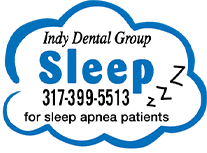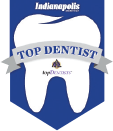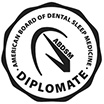Even if you’ve heard of sleep apnea, you may not take it seriously. You might think it’s just some nighttime snoring. Truthfully, though, this sleep disorder is pretty darn dangerous. The wisest move is to keep on guard against its effects. Luckily, you can protect yourself by learning lesser-known sleep apnea facts. Your Indiana dentist will even share a few with you. So, stay safe from sleep apnea by memorizing the four points below.
There’s More Than One Type of It
Many people assume there’s only one kind of sleep apnea. However, that’s not actually the case. In reality, the problem has two forms: obstructive sleep apnea and central sleep apnea.
Obstructive sleep apnea (OSA) is the more common type. It typically occurs when your throat muscles relax and block airflow to the lungs. As that happens, your breathing repeatedly stops and starts to the point of disrupting sleep.
In contrast, central sleep apnea is rarer but equally disruptive. It takes place when the brain doesn’t tell your muscles to breathe. As such, this type is often caused by health conditions with neurological effects.
It Doesn’t Only Affect Men
At this point, sleep apnea has a reputation for only affecting older men. Such an idea, however, is far from the truth.
You see, other groups can also develop sleep apnea. The condition is already known to affect roughly 9% of women. Meanwhile, there’s also a chance for very young kids to suffer it. The American Academy of Sleep Medicine finds that 2% of children in early childhood have sleep apnea.
It Varies in Severity
Sleep apnea isn’t always just a minor nuisance. The disorder can vary in its severity, even becoming life-threatening at times.
To be more specific, people can have mild, moderate, or severe sleep apnea. The mild form stops your breathing 5-15 times per hour. On the other hand, moderate sleep apnea stops it about 16-30 times an hour. The most severe kind will prevent breathing more than thirty times an hour. Consequently, this last variety puts you at risk of heart failure and cardiac arrest.
Dentists Can Treat It
Fortunately, medical doctors aren’t the only ones who can treat sleep apnea. Qualified dentists are also able to address it.
In particular, many dentists can fix sleep apnea with oral appliance therapy. This latter service uses a retainer or mouthguard to reposition your jaw during sleep. In doing so, it keeps your airway open overnight so you can breathe more easily. The result is a lot less snoring and much better rest!
By learning these lesser-known sleep apnea facts, you can act accordingly and improve your nights. So, make sure to remember them – you’ll have less disordered sleep breathing.
About the Practice
Indy Dental Group is based in several Indiana locations, including Indianapolis, Carmel, and Westfield. Led by many top-tier dentists, our team offers state-of-the-art dentistry for each and every patient. In particular, we provide preventive, cosmetic, and restorative services, as well as emergency dental work. We also take pride in being a certified provider of Invisalign clear aligners. For more information or to book a visit, you can reach us on our website or by phone at (206)-244-4622.


























